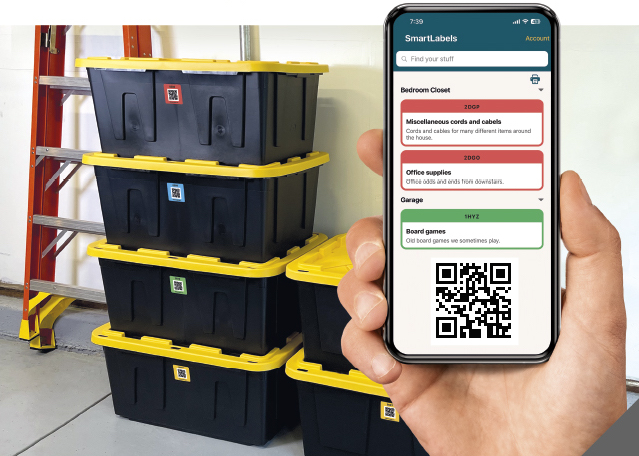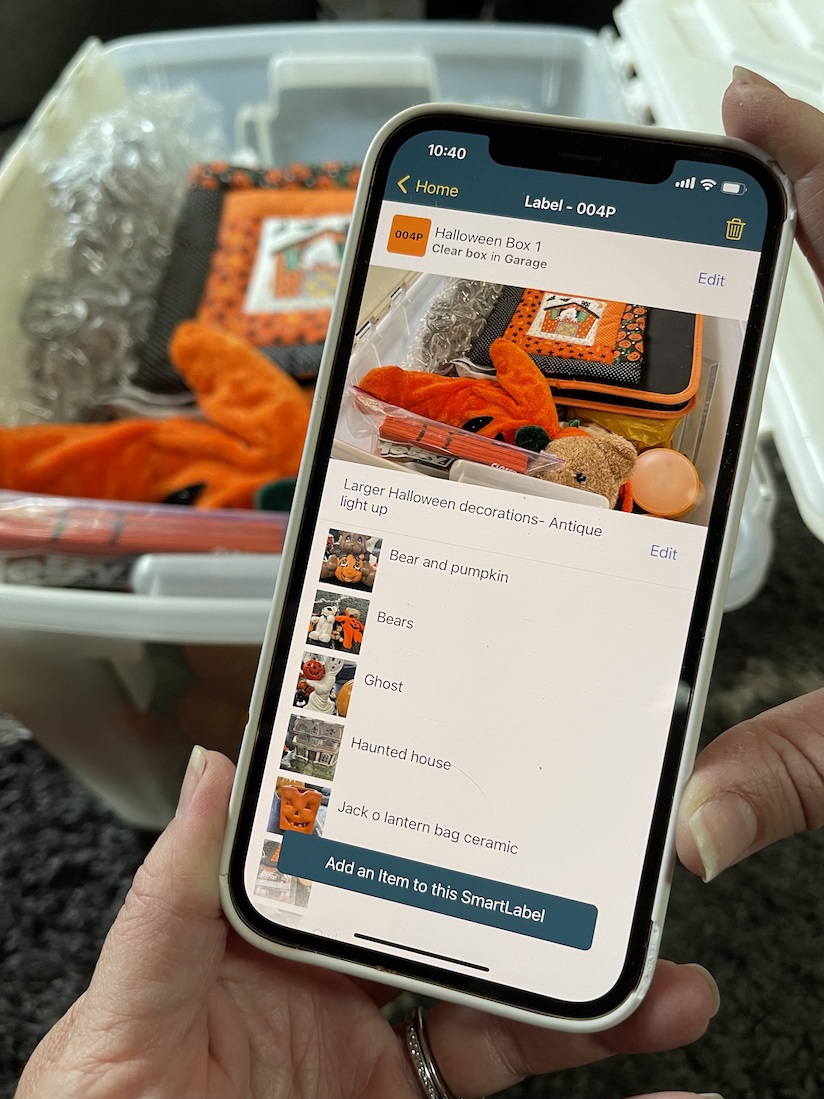August 29, 2025
GREENBRAE, CA – When David Hewlett (pictured) acquired SmartLabels back in 2022, he had four competitors. Three years later he has 20 similar companies all angling for his market share.
Prosper Show first caught up with Hewlett here in 2024 and our latest visit in August 2025 finds the Marin county entrepreneur working hard to grow the brand. We sat down with Hewlett to find out; How does he fight those competitors? What’s the plan for going from good brand to great brand?
 Prosper: How closely do competitors mimic you?
Prosper: How closely do competitors mimic you?
Hewlett: Many copycats have the exact same language and wording that I have in my app.
Prosper: How much of a dent have they made to your business?
Hewlett: None of them took that much share away from me, but there were so many that it all added up to a good amount. I had to really try to find new ways to get more revenue.
Prosper: How have you managed to weather all that competition?
Hewlett: I’m definitely an established business in the space and one of the largest sellers. Part of what helps is that I have a lot of reviews. People can see how many sales have been made so they know that people are buying it. The app is really good, and I really focus on the quality of the product. A lot of people refer me through viral marketing, and it’s become a recognized brand name.
Prosper: How important is brand name recognition?
Hewlett: Consumers who search on Amazon can identify the real brand and seem to know the knock-offs. With my product, you’re storing data so you really want to make sure that the data is going to be there for a long time—because you need to go back in and find your stuff later. You don’t want to rely on a brand that is going to go out of business and then lose all the work you did. People want an established business that they can trust will be there for the long term.
Prosper: What type of help did you seek?
Hewlett: I used the same agency that’s been helping me with TikTok and other social platforms, particularly with influencers. It took a little while, but this year we’ve really taken off, and often times I’m doing more unit sales there [TikTok] than on Amazon. It’s getting better this year for sure.
 Prosper: How would you describe your influencer odyssey?
Prosper: How would you describe your influencer odyssey?
Hewlett: For me it has definitely worked.
Prosper: How did you start with influencers?
Hewlett: It was a bumpy road when I tried to do it on my own. I was reaching out and making agreements with people and just wasn’t seeing the return.
Prosper: Why was it not working?
Hewlett: I was probably picking the wrong influencers, and some of it is pretty difficult to track. I realized I couldn’t do it myself so I hired an agency who I knew was good at it.
Prosper: How quickly did that work?
Hewlett: It still took us a little while to get it going. We tried all these different things and finally we got to a spot where we could grow on TikTok. But before that, I thought, ‘This is not going to work for my business.’ Eventually we looked at everything—price point, packaging, and wording.
Prosper: How optimistic were you about the influencer possibilities?
Hewlett: I always knew that the influencer model was going to be good for my business in particular—because it’s a slightly more complicated product that does really well when it’s displayed with video so you can see what it does. When you see it, you think, ‘Oh wow, that’s really cool.’ It’s a little harder to get that off of just a page or the packaging of the product.
Prosper: So the agency has been worth the money?
Hewlett: It’s not cheap, and it took me a while before I was even making up the monthly fee from the agency. But once we once we got there it became my biggest place of expansion this year—so I’ve been really happy with it. However, it took time, money, and patience.
 Prosper: If the TikTok ban finally goes through, how much of an impact would that have on you?
Prosper: If the TikTok ban finally goes through, how much of an impact would that have on you?
Hewlett: I hope that TikTok gets bought by an American company and they are able to work that out. It would be it would be a big blow to me if it went offline. I would have to find something else to replace it and maybe all those viewers would go to another platform—but it would be an initial blow for sure. I would have to go back to the drawing board and lick the wounds.
Prosper: How nice is it to NOT be concerned about tariffs?
Hewlett: It feels wonderful. I’m proud to be employing people in this country who are building my product. We build high-quality products here in the United States.
Prosper: What are you doing right now to prepare for the holiday season?
Hewlett: I do a good amount of podcast advertising for the holidays and that works for me, but I’m just getting into the planning stages. Being produced in the United States, I have inventory on hand so I can get stuff done pretty fast. The biggest time of the year for me is December into January and part of that involves gifts for people who have New Year’s resolutions to get organized. They’re buying tons of my products just so they’re ready to put their Christmas decorations away. It’s a huge time of year for me.
Prosper: What platforms are on the rise?
Hewlett: Once Walmart gets out of their own way, their marketplace is going to be fantastic and it’s going to grow even faster than it’s been growing. I’m optimistic that that could turn into a big channel. I think there’s I think there’s a lot of opportunity out there.
Prosper: What are your plans for the future?
Hewlett: With a lot of competition coming in, I decided to create a new product which I can’t talk about quite yet. It’s in a category that should do quite well, so I’ll be excited to let you know when it’s live.

Recent Comments